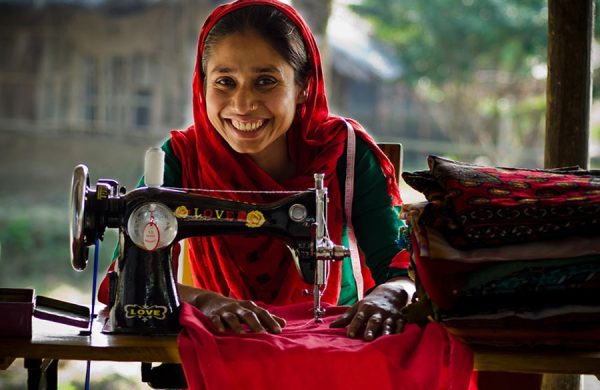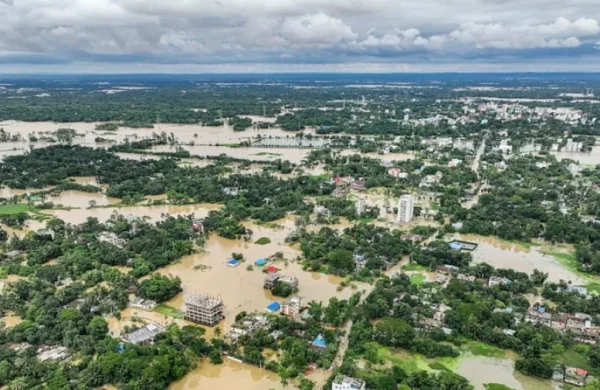EXPLORING HORIZONS: How Energy Efficiency Can Power Bangladesh’s Future
- Update Time : Friday, May 17, 2024

-M Munir Hossain-
Bangladesh’s appetite for energy has grown manifold on the back of its economic boom over the past couple of decades. Imported liquefied natural gas (LNG) had earlier been viewed as a cost-effective solution to cater to this ever-increasing demand, but it has turned out to be a financial burden for the country of late. The Institute for Energy Economics and Financial Analysis’s (IEEFA) recent report, “LNG Isn’t the Answer: How Energy Efficiency Can Save Bangladesh Billions,” sounds like a crucial reminder: improving energy efficiency instead of importing more LNG to meet growing demand could save Bangladesh about $460 million or over Tk5,300 crore each year. Beyond saving money, this is about securing a sustainable and competitive future for the nation.
The IEEFA report, which surveyed 51 industries with 124 gas-fired captive generators with a combined generation capacity of about 250 megawatts to find solutions to reduce the country’s LNG demand growth, exposed the vulnerabilities of relying solely on LNG imports. It identified that the price of LNG has skyrocketed in the global market due to supply chain disruptions, exacerbated by the protracted war in Ukraine, sending shockwaves through the Bangladesh economy. Besides, depreciations of the local currency, the taka, on numerous occasions over the past couple of years have weakened the country’s bargaining capacity in the international energy market.
However, the problem lies not only in the fuel itself but also in how it is used. Many industries, even more so without reliable grid power, depend on gas-fired captive electricity generation. And the crux of the opportunity lies in this very deficiency: these ageing power generators are often inefficient, consume a significant quantity of energy, the costly gas, and squander the waste heat they produce – a valuable resource that could be harnessed for other applications.
The country can achieve significant energy savings by upgrading to more efficient power generators in industries and capturing the huge amount of waste heat generated by the gas-fired power plants that presently go unused, argues the IEEFA report, estimating that replacement of the ageing generators and proper utilisation of waste heat could slash LNG demand in industries by 21%.
The cherry on top? Even though this shift towards efficiency requires an upfront investment, the payback period is remarkably short – between 1.5 and 5 years for generators and merely a year for waste heat recovery. On the contrary, continuing on the current path of increasing LNG imports means pouring money into a system prone to external shocks and offering diminishing returns.
The long-term benefits of the shift towards efficiency are not limited to cost savings. Ensuring energy efficiency paves the way for a more sustainable future. Because the era of cheap fossil fuels is nearing an end and the world is shifting towards a low-carbon economy, energy efficiency is set to become a cornerstone of industrial competitiveness in the global market in the days to come, and factories reliant on imported fossil fuels will face a growing disadvantage in this respect. And the good news is that the government has already crafted a policy framework to accelerate this transition. It has made energy audits mandatory for designated consumers, including industries. The Sustainable and Renewable Energy Development Authority (SREDA), the regulatory agency for the sustainable energy industry, serves as a launchpad for measures to accelerate energy efficiency deployment.
The IEEFA report correctly stresses the need for easier access to finance and robust incentives to encourage widespread adoption of energy-efficient technologies. Going beyond captive power generation, the report outlines a comprehensive strategy for the long-term energy security of the country, which includes streamlining the power grid, investing in renewable energy, building a balanced power generation mix by including peaking power plants alongside base-load plants, and addressing industrial inefficiency.
Nevertheless, ensuring a truly secure and sustainable energy future for the nation hinges on a multifaceted approach that is not limited only to mills and factories. It is very important to empower all consumers, including those who use gas and electricity for household chores only, to become active participants in energy conservation.
The nation must cultivate a culture of responsible energy use in every sector. Raising awareness among the people by engaging in campaigns that educate them about the importance as well as the economic and environmental benefits of energy conservation can play a pivotal role in this end.
We must make consumers aware of the fact that some small changes in behaviour, such as using energy-saving appliances instead of energy-guzzlers and refraining from keeping lights and electronics on when not in use, can do the world of good. Students at schools and colleges must be taught about responsible use of electricity and gas and their benefits by incorporating appropriate lessons into the syllabi so that we can build a generation of environmentally conscious citizens.
Besides, the authorities concerned must implement smart metering systems to enable consumers to track their energy consumption in real-time, encourage informed decision-making, and promote responsible habits.
The government should also consider offering rebates on energy-efficient appliances and incentivising consumers to invest in long-term solutions. It must invest in grid modernisation to build a reliable and efficient national grid, which will incentivise industries to shift away from captive power generation and rely on cleaner grid electricity.
To sum up, attaining a sustainable and secure energy future warrants concerted efforts from all stakeholders, including the government, industries, and general consumers. And the path is paved with energy efficiency.
_______________________________________
The writer is a journalist.



















